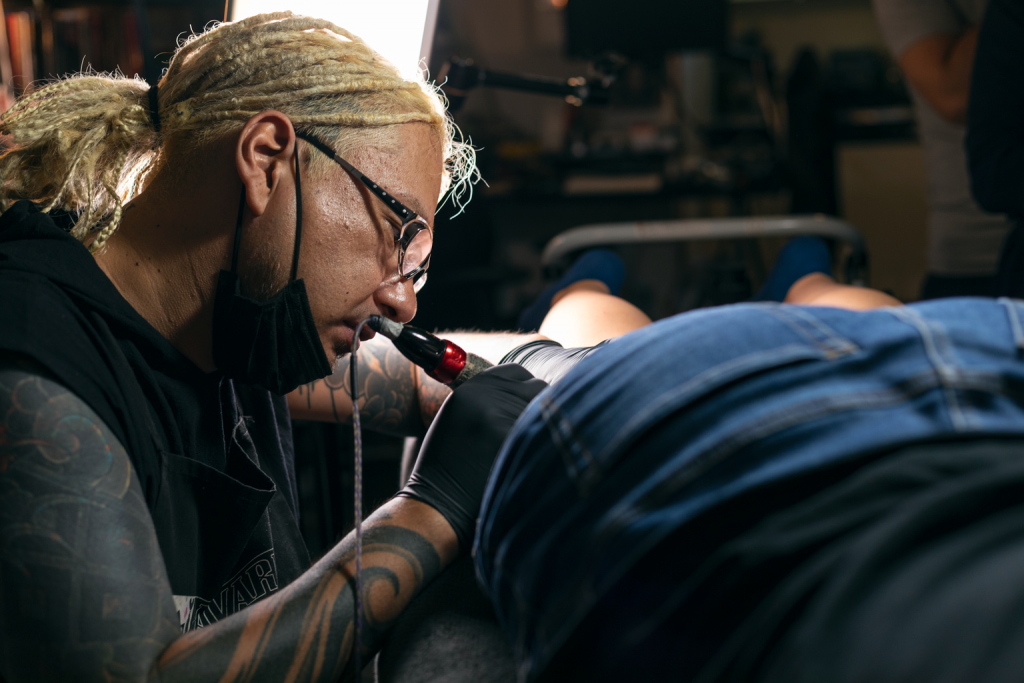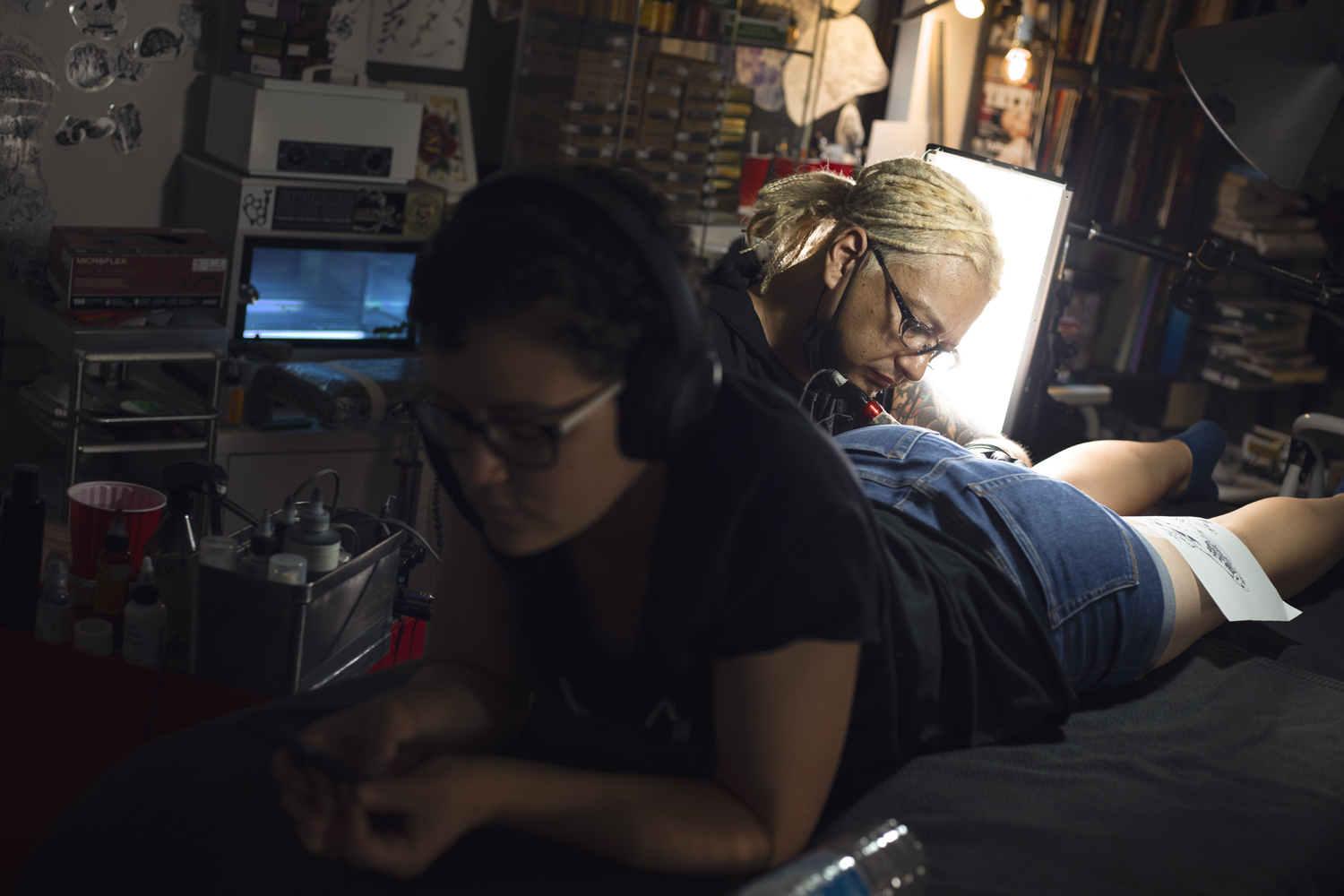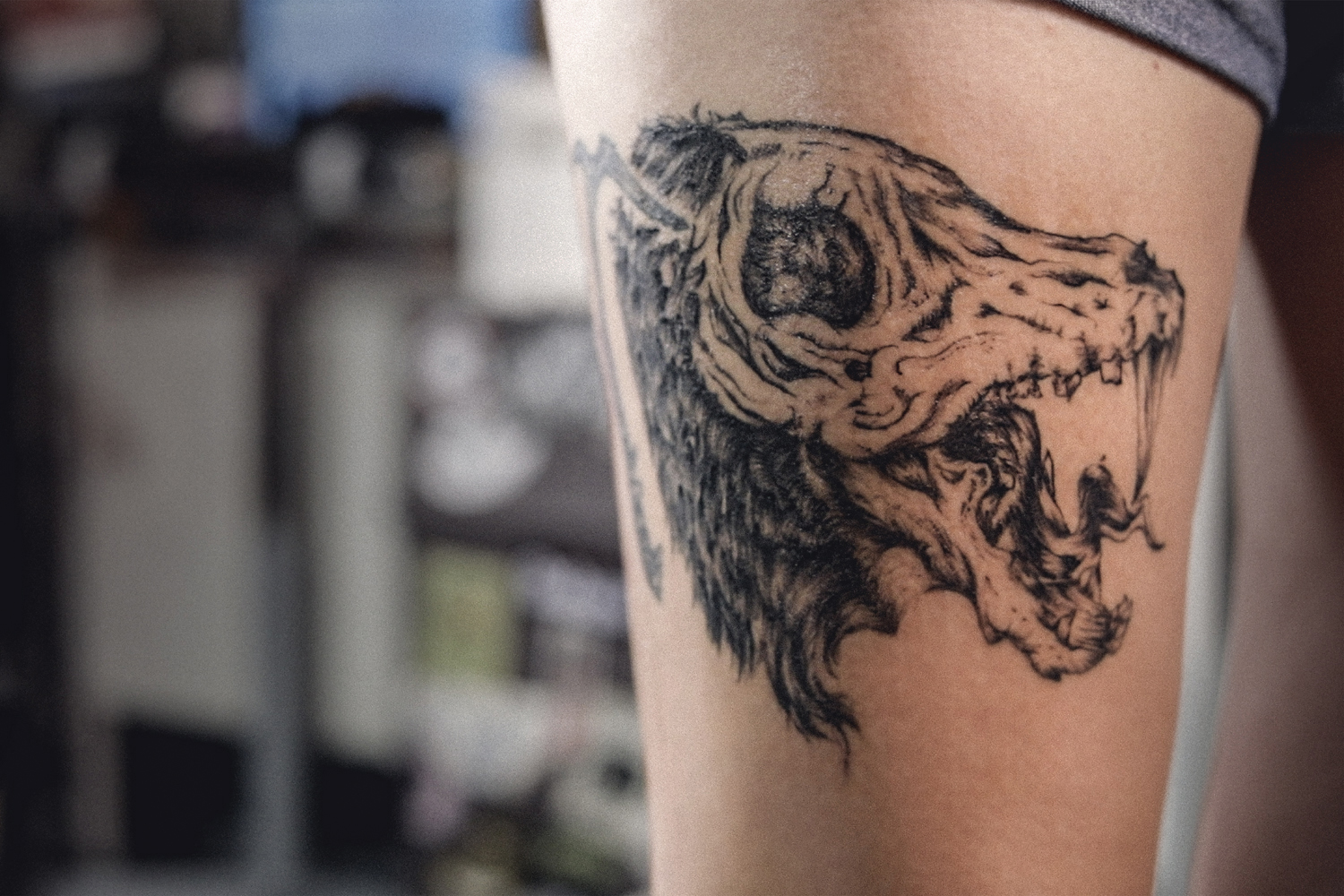“Tattoos last longer than romance.”
The sign on iPo Tattoo Loyal’s wall catches your eye as soon as enter and you can’t help but reflect on the bittersweet truth of the sentiment. Yes, romance comes and goes but the memory of it engraved on your body remains, reminding you of every moment and emotion you lived through while in the relationship.
That is why tattoos are romance in themselves and that is exactly how we should approach them, says Ken “iPo” Riku, owner of iPo Tattoo Loyal, as he welcomes us into his studio on a busy Saturday afternoon. Five years into the business, Riku has managed to build his studio into a top destination among ink-seeking foreigners living and traveling in Japan not only because of his English skills but also thanks to his very personal approach to his work.
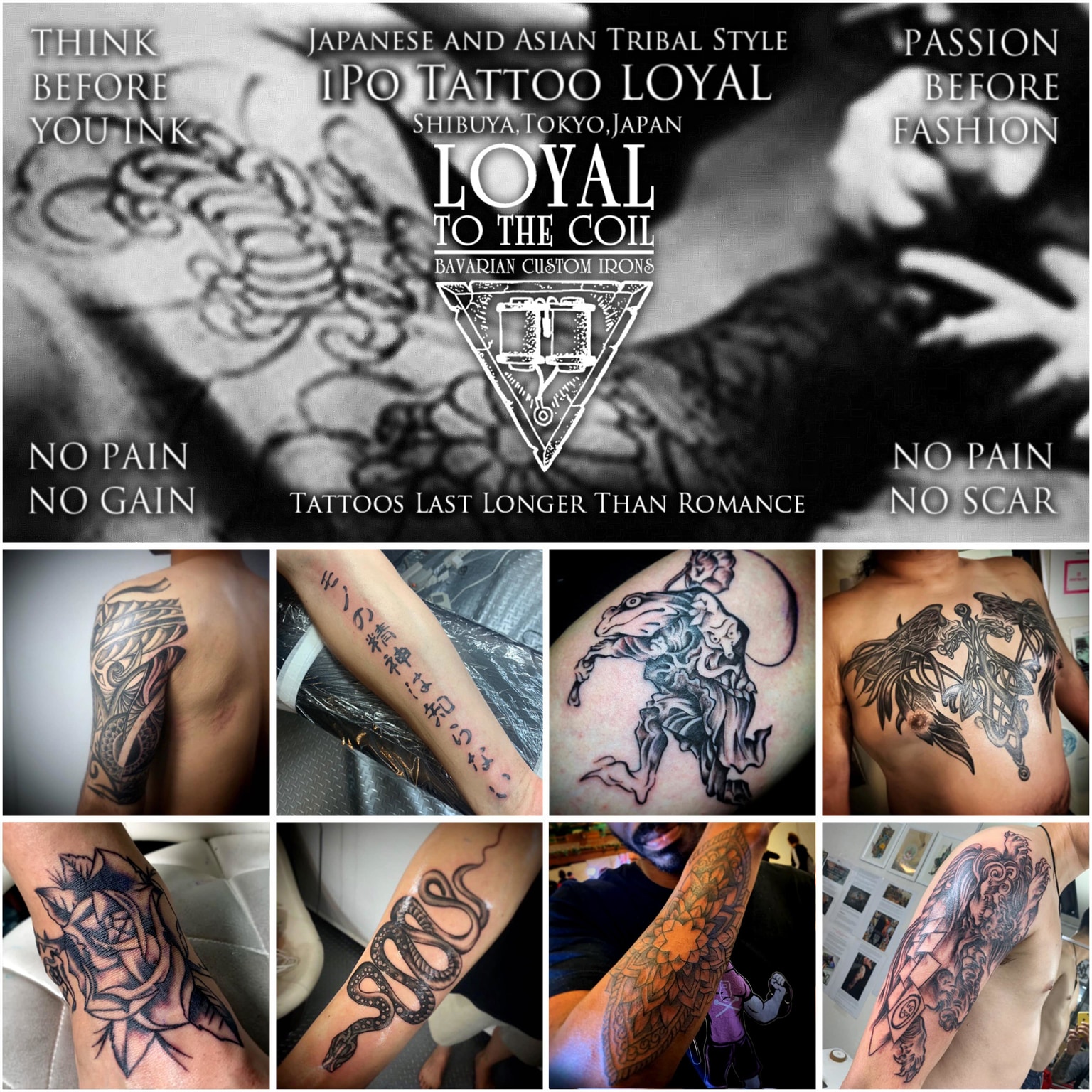
“My policy is to always start by listening to the client first,” Riku says. “Many people come to me not knowing what exactly they want. And this is normal, especially for first-timers. What they have however is a story, imagination, that has led them to seek a tattoo, and that’s what I try to discover. My main task is to grasp their imagination and take it to the next level.”
It is predominantly thanks to this personal approach that customers feel comfortable to repeatedly step into Riku’s studio. No matter how obscure or complicated their wish, they know they’ll be heard, even if their requested design is jaw-dropping — like the deer-boar skull image brought in by Kanagawa-based illustrator TY after being rejected at other tattoo studios. “They all wanted to change my design according to their likes or expertise,” she says, her disappointment palpable. It was only Riku who welcomed her idea without imposing his style, promising to create the tattoo she had envisioned in her mind.
“That’s some crazy stuff, though,” he says with a laugh, taking one last look at her detailed drawing as he gets ready to press the ink.
Bumpy Early Days
Looking at Riku today, it’s hard to imagine that only a decade ago, his life was on the verge of collapse. Born in Chigasaki in Kanagawa Prefecture to a family with a multicultural background, Riku was raised in Atsugi and Yokosuka where in his teenage days he admits he was a bit of a rebel without a cause. “I would regularly get in fights and do all sorts of things that would get me in trouble,” Riku recalls.
Following his high school graduation, Riku headed to New York to pursue his interest in the arts at the New York Film Academy where he studied film and video production. This eventually brought him back to Japan with a job at one of Japan’s top TV companies.
“I was leading a comfortable life — work, money, love was all okay,” he smiles. “But I was starting to feel that this is not what I would want to do for the rest of my life. Looking at my life back then, I think that my [late] parents wouldn’t have been proud. I was starting to feel that I needed a change.”
Before he had time to think too deeply about exactly what kind of change he wanted, a sequence of events turned his world upside down. First, he lost his job. The reason? For getting a full arm tattoo while on vacation in New York. Working in tattoo-stigmatized Japan meant he was swiftly sent home when he arrived at work with the ink, and received no invitation to return.
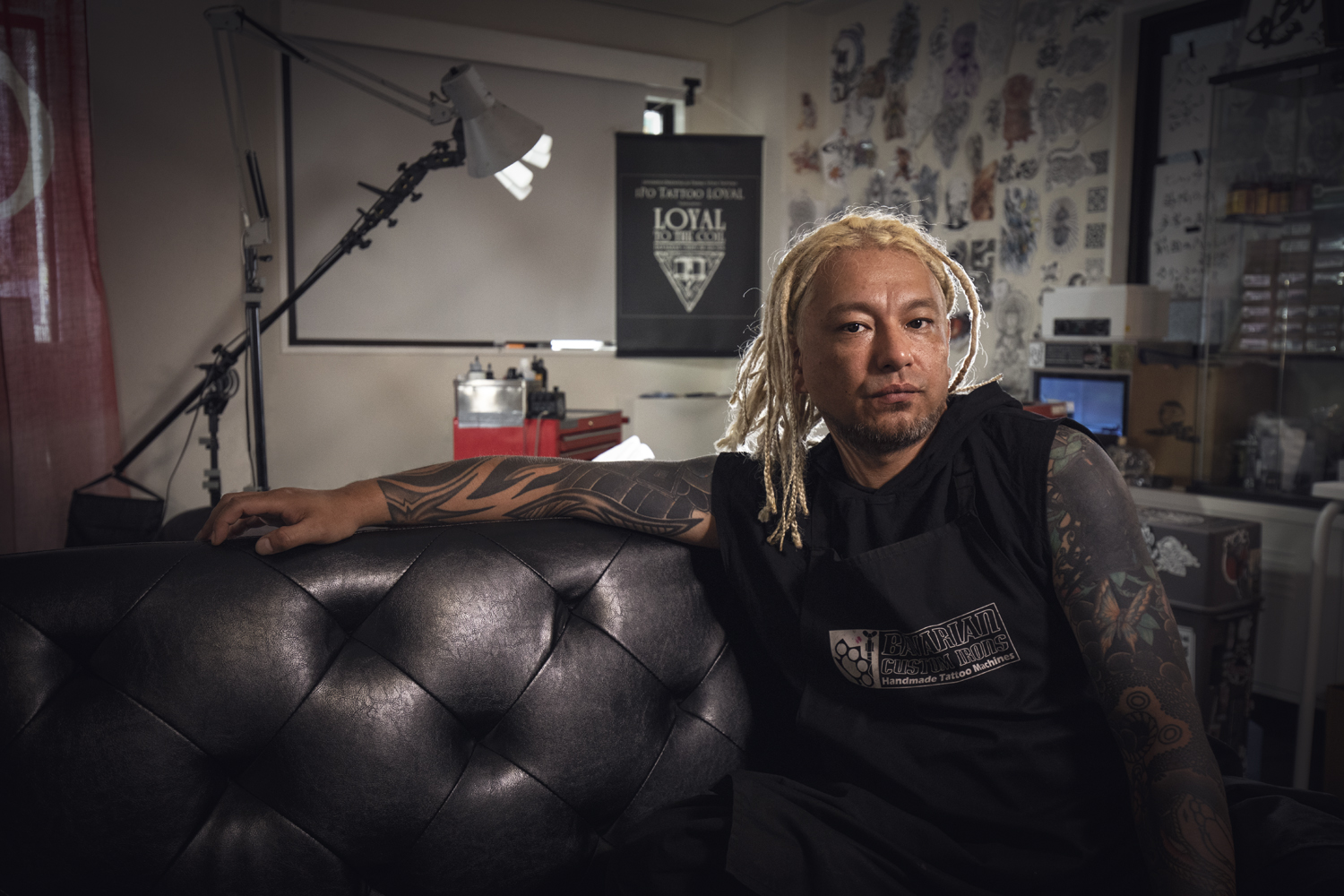
Jobless and heavily inked, Riku landed a freelance gig as a photographer and visual assistant, which saw him traveling for work across Japan.
Then, on March 11, 2011, he was filming at an old soba noodles restaurant in Tochigi Prefecture when the earth below him started to shake and the roof above him collapsed, leaving him lying crushed under ruins, unable to move.
A Turning Point
After the Great East Japan Earthquake hit, Riku found himself in a hospital bed, both his legs numb and facing the prospect that there was a chance he would never be able to walk again. He also had to come to terms with learning that all the other people who had been with him in the soba restaurant were killed in the quake. A person doesn’t need much more than this to feel emotionally broken.
But he wasn’t.
“I had so much time to think as I was lying in that hospital bed. It felt as if I had died once, but was given a lost time as a second chance. And I knew that I had to extend this time to the max,” Riku says. “I was grateful to be alive. I was blessed with a gift of having both my arms left intact and I knew that as long as I had them, I had a future. I had no time to grieve.”
“I had so much time to think as I was lying in that hospital bed. It felt as if I had died once.”
It was then that Riku decided to become a tattoo artist, a profession he had in fact admired all his life.
“As I was undergoing rehabilitation, the only thing I could think of was how to become a tattooist — not whether I should, but how. I kept thinking that my arms were left untouched for a reason. Even if my right leg were to be paralyzed for life, my mind and my right hand were perfectly clear. At that moment, I couldn’t imagine another life for myself than this of a tattoo artist.”
For the next two years, while undergoing rehabilitation, Riku did all he could to teach himself the art of the ink. A skilled illustrator since he was a child, and a wearer of multiple tattoos himself, he was able to pick up tattooing quicker than he had imagined, and he soon set up a small studio in downtown Tokyo.
It wasn’t until a few years later, however, that his career would take a massive leap forward and once again, fate played a major role. A tattoo machine he had purchased from New York arrived broken, leading him to contact the manufacturer in Europe who turned out to be the well-known Stefan Fischer, owner of Bavarian Custom Irons, a high-quality tattoo machine brand from Germany.

Surprised by Fischer’s offer to send him a brand-new machine (instead of just advising him on how to fix it as Riku had assumed would be the case), Riku flew to Germany to pick it up in person. Impressed by the Japanese artist’s enthusiasm, Fischer invited Riku to stay with his family, during which time he intensively taught him everything he knew about tattooing and machine making. He also asked him to become a Bavarian Custom Irons’ official distributor in Japan, a privilege that instantly gave Riku a path to the top echelons of the industry.

And just before Riku would return to Japan, Fischer gave him one final gift: the brand’s signature “soul” mark as a tattoo on Riku’s neck. For Riku this meant not only a new beginning but also a promise to continue being loyal to the brand and the craft.
iPo Tattoo Loyal: A Haven for Ink Seekers
“I came back [to Japan a] completely different [person],” Riku recalls, his eyes sparkling with confidence. Having gained valuable knowledge and expertise, and having become acquainted with multiple professionals in the field, Riku permanently opened iPo Tattoo Loyal in central Shibuya in March 2018, a cozy studio that is now increasingly frequented by foreign clients seeking Riku’s tattoos.
Though predominantly specializing in Japanese and Oriental designs, Riku has no design catalog per se (apart from the many sketches hanging on his walls) and is open to any suggestions and ideas from his clients.
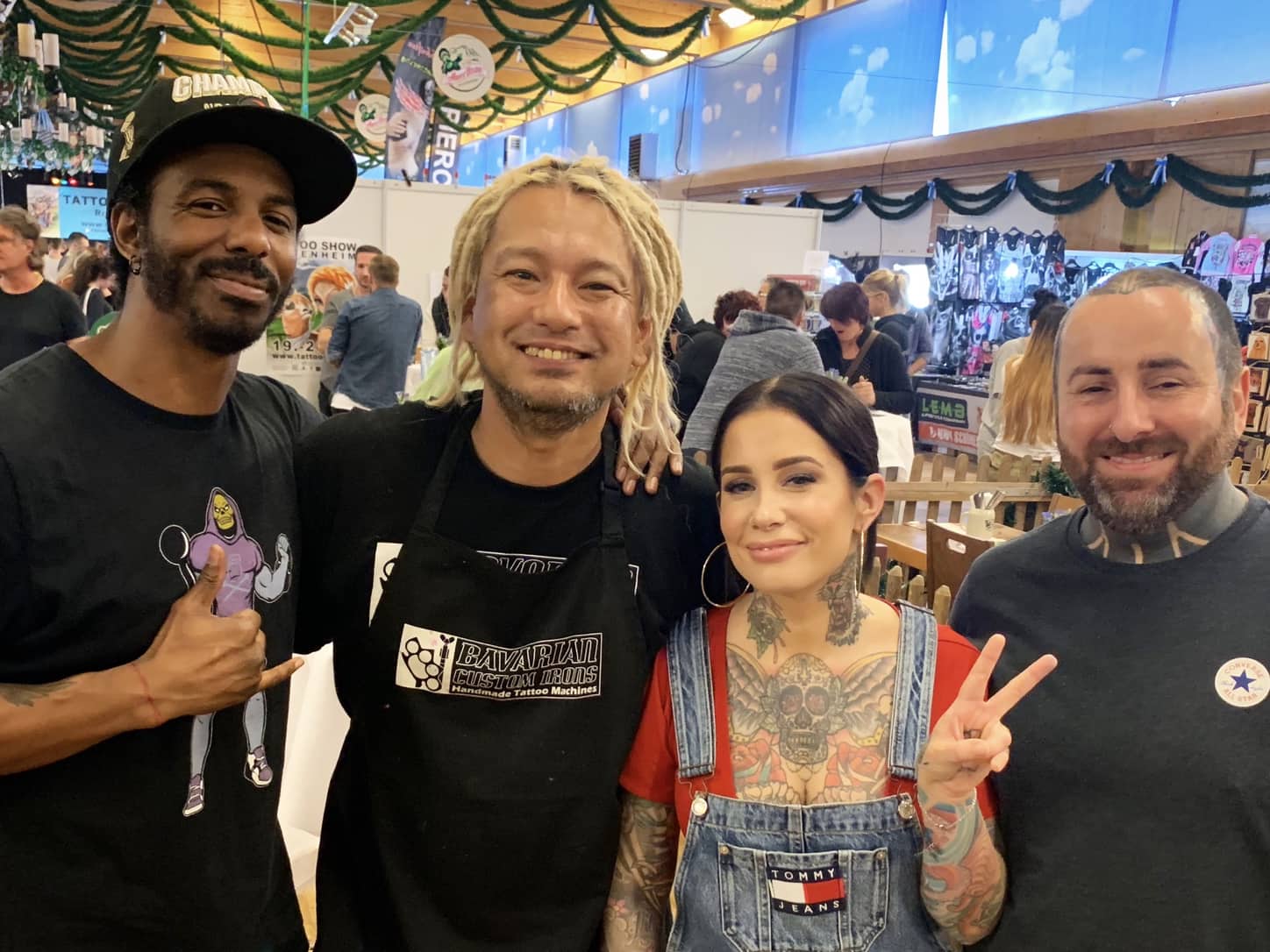
“Clients’ ideas help me grow as an artist,” Riku says, revealing that he is happier now than he has ever felt before. “I can’t describe the sense of joy I feel when people thank me for my work,” Riku says. “For the first time in my life I’m using my hands to give happiness to others and it makes me so proud. I’m grateful for everything I have in my life now. I’m grateful for being busy with something I love to do,” he says, glancing over at his next client who’s waiting for her turn.
Eleonor, a tourist from the UK, came to iPo Tattoo Loyal during her first trip to Japan to get a blooming sakura flower on her arm as a memory of her trip.
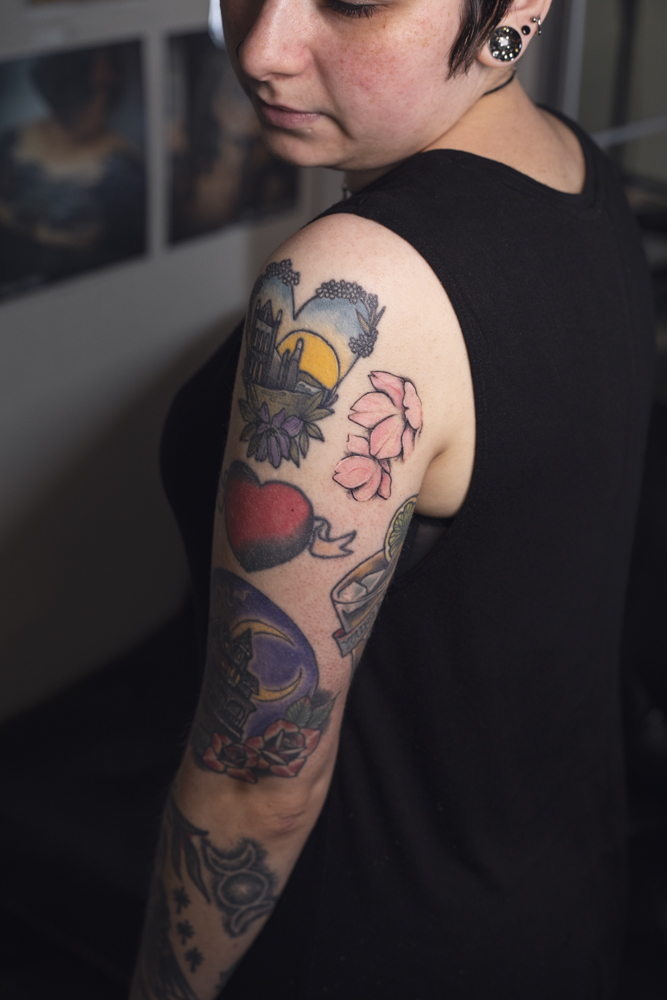
“It was my birthday when I came here and I sort of did it as a gift to myself,” she says with a laugh. “I was quite nervous coming to Japan, but [Riku] was really welcoming and made me feel relaxed. It’s very cozy and homey here — it feels like you’re hanging out in your friends’ apartment, which is really cool,” she says, adding that she’s already planning on coming back for a larger art piece.
After her session, she’s all smiles as she hugs Riku on her way out. Once again, the sign on the wall stands out.
“Tattoos last longer than romance.”
Indeed. But something suggests that if the ink we carry is a product of true love, the romance is here to stay. Perhaps forever.
Looking around, it’s another busy day at Riku’s studio: The music is playing, the vibe is set and his next client is full of anticipation for the start of a once-in-a-lifetime body-art encounter.
“Let’s do it,” Riku says, his voice echoing in the room followed by the buzzing sound of his tattoo machine.
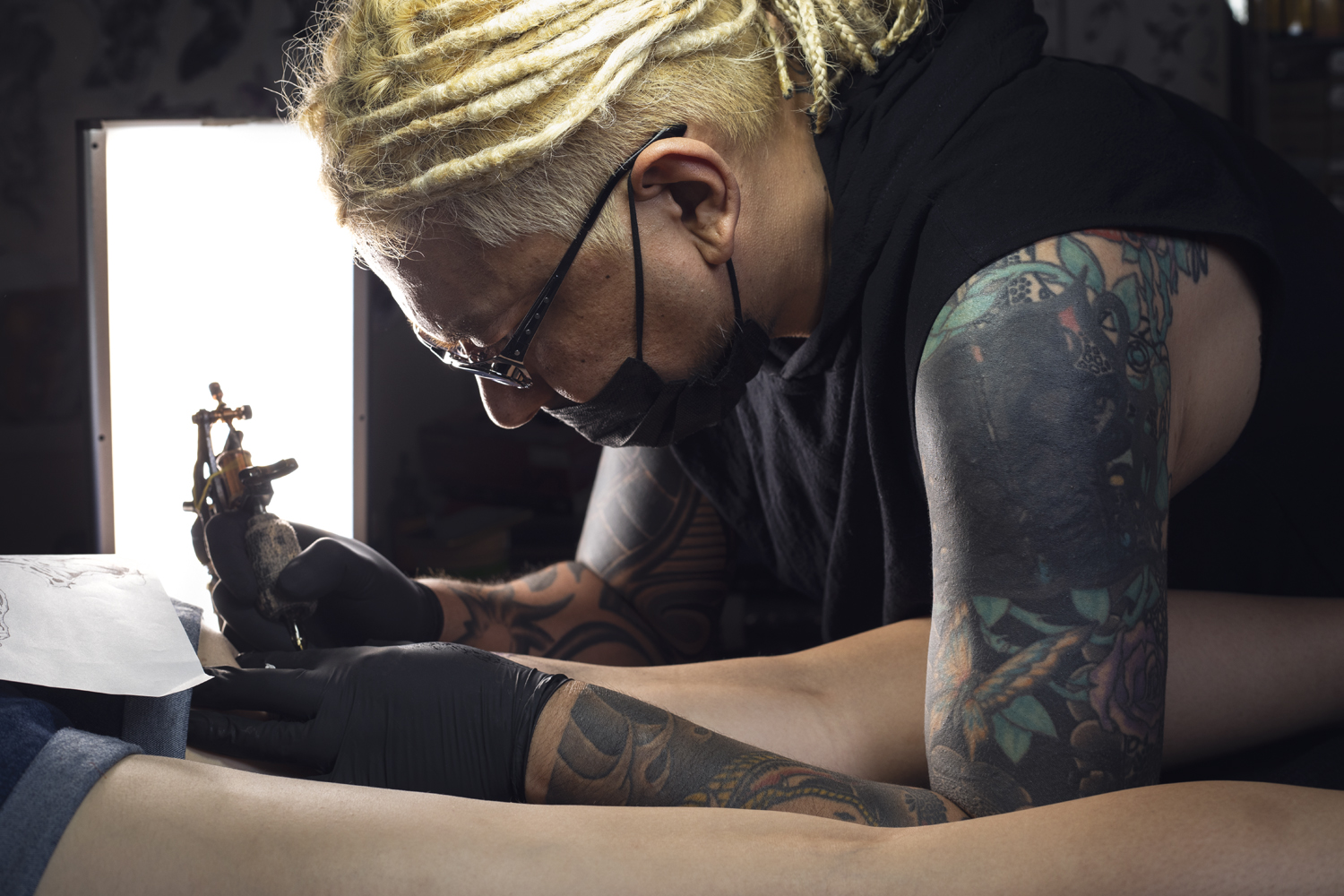
iPo Tattoo Loyal
Address: Room 201, 14-3 Maruyamacho, Shibuya-ku, Tokyo
Access: 10-minute walk from Shibuya Station
Open: Per appointment. Contact Riku directly via Instagram
Price: ¥10,000 per hour. US letter size 8.5 x 11 inch (normal detail design): ¥80,000 for eight hours. Minimum tattoo session rate starts from ¥20,000. Payment via cash or PayPal.
Web: www.bavariancustomirons.jp
Photographs by David Jaskiewicz
Sponsored Post

